Business
Businesses To Start Post COVID
Published
5 years agoon

Coronavirus disease (COVID-19) has forever changed our lives, including how we do business. Despite the temporary halt during the pandemic’s onset, more and more ventures have been bouncing back strong.
That said, it’s a good time as any to seize the opportunity to offer products or services people need under the new normal. And if you’re thinking of starting a business to start post covid, you certainly won’t run out of excellent ideas.
If you’re wondering what industries are projected to reign supreme in a post-pandemic world, here are a few options you might want to consider.
1. Online Merchandise

Online shopping might have been popular even before the pandemic. However, the threat of catching the virus has made eCommerce all the more relevant. In fact, a survey by the United Nations Conference on Trade and Development (UNCTAD), online purchases rose throughout the pandemic.
That said, if you’re looking for a business to start post covid, an eCommerce venture has never been as attractive as it is now.
According to a report, items that have been selling out from online shops during the pandemic include cleaning materials, thermometers, board games, baking supplies, fitness equipment, and home office supplies.
Whether you’re offering essential needs like food and toiletries or miscellaneous items like gifts and hobby-related items, eCommerce is the way to go.
2. Local Delivery

When the pandemic first broke out, people relied on deliveries for their needs. And now that they’ve come to appreciate the convenience of effortless shopping, the delivery industry will only flourish even more.
Many are exploring the idea of offering “hyperlocal” delivery or catering to a certain niche. For instance, focusing on a specific service such as beauty products, pet supplies, or medical needs. This narrows your services to a specific product set, making you a go-to venture for things related to your brand focus.
3. Home Improvement
It may be cabin fever at work, but being stuck at home can push people to think of ways to improve their living space. A survey by Bank of America says over 7 out of 10 Americans tacked home improvement projects during the pandemic.
The good news is, more projects are scheduled in 2021, so surely won’t be late to the party. Some of the products and services to consider are home office space and children’s playroom solutions. Many homeowners are also looking to extend their living space through outdoor amenities like patios. These projects allow them to enjoy the outdoors without having to brave crowded parks or public places.
4. Home Workout and Health Tools
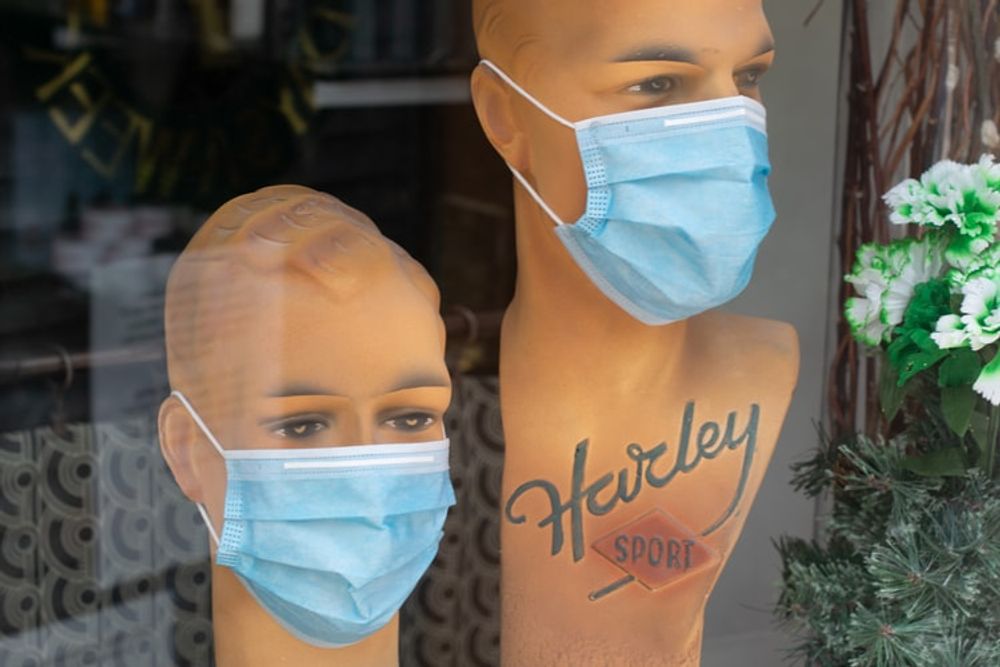
As mentioned from the UNCTAD survey above, fitness equipment was one of the best-selling items during the pandemic. Added to that, a survey says almost 6 out of 10 Americans aren’t leaning to renew their gym membership after the crisis.
For one, some aren’t comfy using the same gym equipment as other members with a virus going around.
With more people trying to avoid outdoor exercise and fitness gyms, focusing on home workout is a good business to start post covid. Whether you’re leaning towards workout apps, gym equipment, or health products like meal plans, it’s best to strike while the iron is hot.
5. Online Teaching
With face-to-face classes discouraged to prevent the spread of COVID, many people are turning to the internet for instruction. This presents a great opportunity for entrepreneurs in the education and instruction sector.
A report tells us that enrollment at Coursera swelled up to 640% higher from mid-March to mid-April compared to the same period in 2019. This only goes to show that massive open online classes or MOOCs will surely enjoy more prominence from hereon.
But online business opportunities aren’t limited to MOOCs. Learners are just as keen to attend webinars and online workshops just as long as they won’t have to step outdoors to learn.
The Takeaway
Here are the key factors to remember when brainstorming for a business to start post covid:
- Less to no contact. With social distancing at the front and center of policies implemented to curb the virus’s spread, it’s best to focus on ventures that offer products and services without requiring physical contact.
- Convenience. Even without state-mandated lockdowns in place, many people choose to limit going out to avoid exposure to the virus. That said, people now put a premium on products and services they can get right at their doorstep.
- Agility. The COVID-19 crisis taught us that the world could change without warning. In one snap, restaurant dine-ins became curbside pickups, and gym classes were held online. Even babysitters turned to Zoom to entertain kids! Your business model must be able to adapt to societal changes.
Without a doubt, the pandemic has caused a huge economic setback this year. But more than anything, it has pushed entrepreneurs to stretch their creativity and become more flexible to adapt to changing times.
You may like

TLDR: For scalable, high-volume, high-quality design without hiring hassles, Penji is your best bet. For deeply strategic, narrative branding work, go traditional with Contrast & Co, BB Agency, or ProDesigns.
Did you know design is responsible for 94% of first impressions? That means your design is the welcome mat for your soon-to-be customers.
Are you a startup or agency based in Space City looking to launch your design into the stratosphere? You need a design partner who can match your pace.
1. Penji

Welcome to the future of design. Penji combines the top 2% of design talent and AI tools for on-demand, monthly subscription, unlimited graphic design, illustration, and UI/UX work.
Get a whole team at your fingertips. Get drafts in 24-48 hours without having to hire a team or deal with inconsistent freelance pricing. From a quick social media graphic to a full web mockup, Penji keeps your project on track at all times.
Pros:
- Unlimited Requests: Submit as many projects as you want.
- Fast Turnaround: Drafts in 24-48 hours.
- Cost-Effective: Flat monthly fee, no hidden charges.
- Expert Designers: Access to top global talent.
Cons:
- Not Strategy-Focused: Best for execution, not long-term brand strategy.
2. Contrast & Co
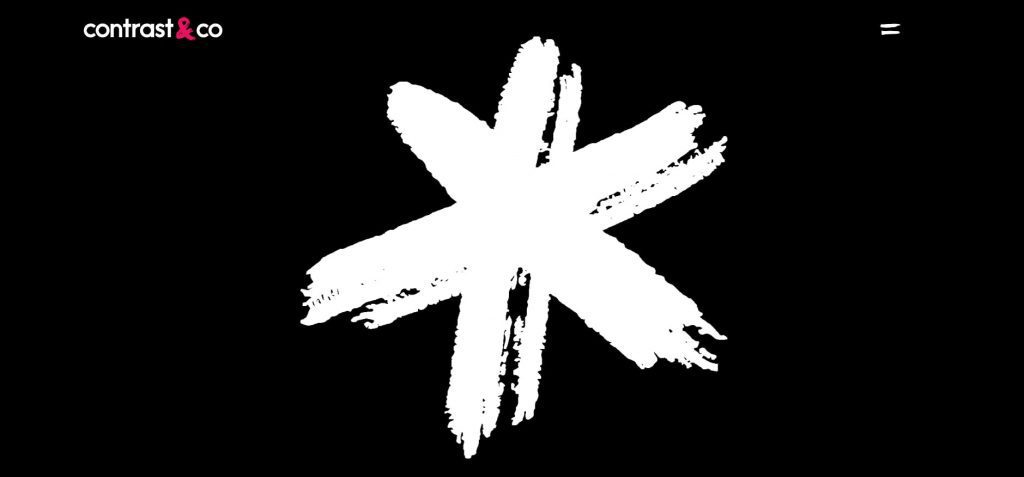
If you’re looking for the traditional agency model with a little storytelling flair, Contrast & Co is the way to go. Although they’re based in Annapolis, they are experienced with many Houston clients and are known for building brands based on “radical differentiation.” They don’t just design; they tell stories.
Pros:
- Strategic Depth: Excellent for complex rebranding and brand positioning.
- High-End creative: Known for award-winning, narrative-driven visuals.
Cons:
- Cost: Their premium strategic approach often comes with a higher price tag ($10,000+ minimums).
- Timeline: Traditional agency models typically have longer turnaround times than on-demand services.
3. BB Agency
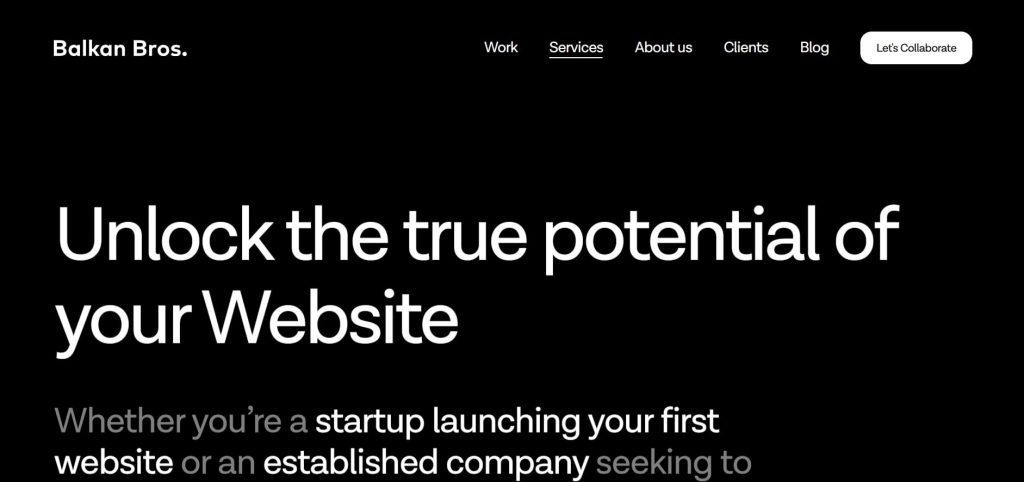
BB Agency works with SaaS and tech companies. They build businesses through thorough B2B branding and digital product design. If you are in the B2B tech space, their portfolio speaks for itself—clean, modern work which places UX at its core.
Pros:
- Tech Focus: Deep expertise in SaaS and B2B sectors.
- Holistic Approach: They handle everything from branding to development.
Cons:
- Niche: Their specific focus on tech might not be the right fit for consumer lifestyle brands.
- Budget: Project costs often range between $50,000 and $200,000.
4. ProDesigns
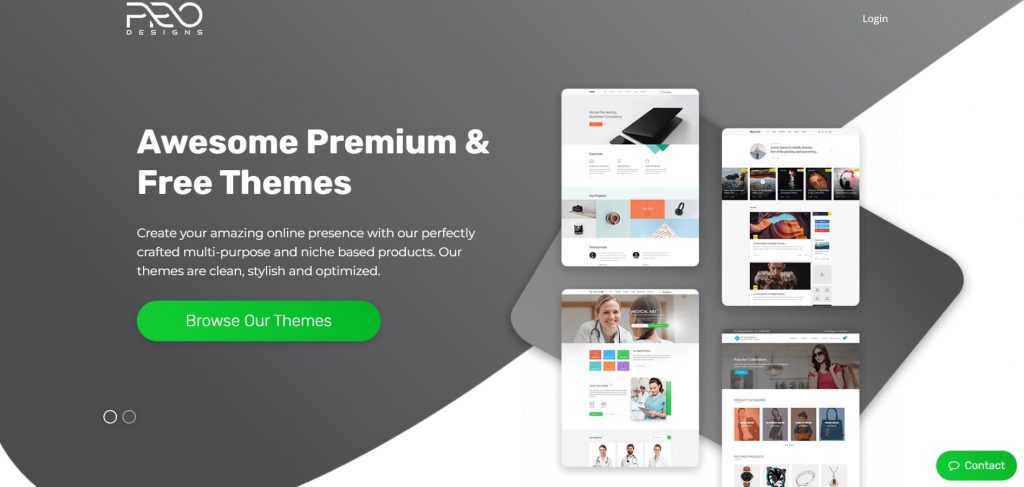
For businesses needing specific, project-based graphic design services, ProDesigns offers a solid middle ground. They focus heavily on logos, corporate design, and packaging. So if you need something created without a subscription or heavy retainer price, they’re great for local one-off projects.
Pros:
- Project-Based: Good for one-off needs like a logo or brochure.
- Affordable: generally more accessible pricing for small businesses compared to large agencies.
Cons:
- Limited Scalability: Managing high-volume, ongoing design needs can become costly on a per-project basis.
- Slower Feedback Loops: Revisions may take longer compared to a subscription model.
FAQs
How much does a graphic design agency cost in Houston?
Agencies in Houston typically charge $100–$175 per hour. Project costs range from $1,000 for small tasks to over $50,000 for full branding. Services like Penji offer a flat monthly rate, often much lower than a single agency project.
What is “design as a service”?
Design as a service offers a subscription model with a flat monthly fee for as much design work as you need for that monthly fee. Instead of paying per hour or project as normal with an agency, this is a way to ensure predictable budgeting and consistency with your design team.
Credit for cover image: Photo by Mikael Blomkvist on pexels
Business
Maximizing ROI in 2026: The Top 10 Facebook Ads Strategy Ideas to Try
Published
2 days agoon
December 25, 2025
In today’s world, digital advertising is the most effective and efficient way to reach potential customers. Facebook advertising, in particular, has become a crucial tool for marketers to promote their brands, engage with their target audience, and generate a high return on investment (ROI). To stand out from the crowd, it’s crucial to implement the most effective actions. For this year, here are our recommendations for the top 10 Facebook ads strategy ideas you need to try:
1. Create Relevant Content

Topping our list is creating relevant content as one of the most effective Facebook ads and marketing strategy. Content tailored to your audience’s interests and needs increases engagement and builds brand awareness. This approach has been effective for years and will continue because it focuses on building a relationship between you and your audience.
Moreover, with the rise of ad-blocking software and decreasing attention spans, creating relevant content is more critical than ever. Creating informative, engaging, and valuable content for the audience ensures businesses that their ads are seen and welcomed by the audience.
2. Create Short-Form Video Ads (Reels & Stories)

Over the past few years, we’ve seen the shift to vertical, sound-on, mobile-first consumption across Facebook and Instagram. That said, it’s best to adapt your Facebook ads to align with this shift, using Reels ads, Stories ads, and vertical in-feed videos.
To make a high-performing short video ad, include a hook in the first three seconds and use captions for sound-off viewers. It’s also a good idea to create native-looking content and have a clear CTA.
3. Personalize Your Facebook Ads

Creating personalized ads on Facebook is an effective strategy because they’re more targeted and relevant to your audience. Businesses can use data from user behavior and interests to provide content that resonates with their audience, leading to higher engagement and conversions.
Plus, personalized ads can help you build trust and brand loyalty by showing you understand and care about your audience’s needs and preferences. This approach helps establish a stronger connection with the audience, leading to increased advocacy and customer loyalty.
You can also explore Advantage+ automated creative, which now personalizes ads using AI.
4. Use Facebook Custom Audiences
Facebook Custom Audiences are essential in a effective Facebook ads strategy in 2026. However, there have been changes in the way they’re used and optimized. Today, Meta’s AI now does much of the heavy lifting.
With Advantage+ targeting, users can start with broad audience signals and allow Meta’s system to automatically expand reach based on real-time performance data.
5. Join the Facebook Video Ad Bandwagon

According to statistics, Facebook videos have 8 billion daily views. This is an excellent Facebook ads strategy idea as they are more engaging than static ads, capturing the audience’s attention and creating an emotional connection. Facebook’s autoplay feature ensures that the video will be seen, making it an effective way to increase brand awareness and drive sales.
Facebook recommends keeping video ads short and adding captions, as these ads increase view time by an average of 12%, making it a more effective strategy.
6. Consider Creating Facebook Custom Landing Pages
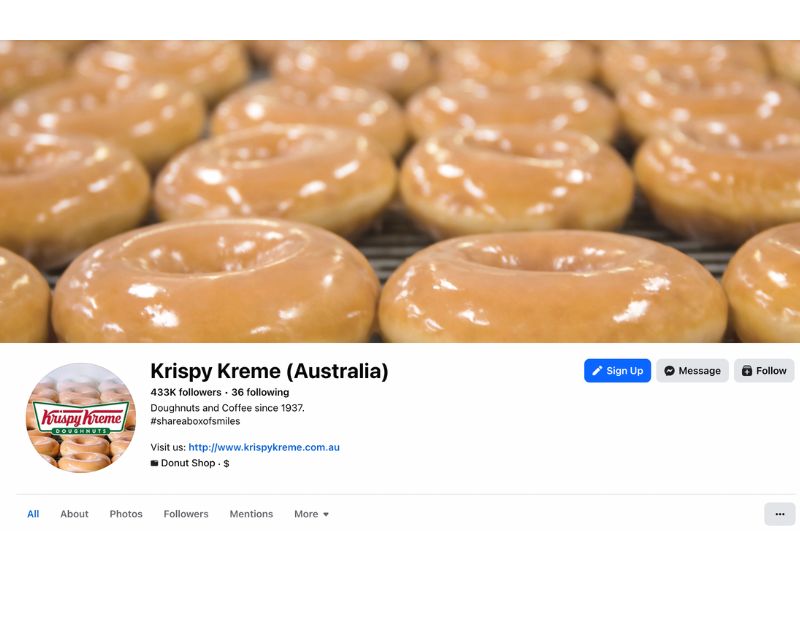
Another highly recommended Facebook ads strategy idea is to create a custom landing page. This means having a specific page for people to visit when they click on your ad instead of just using your website. Using a custom landing page makes it easier for people to take the action you want, like signing up for your email list.
It also ensures they don’t get confused or distracted by other information on your website. So, if you want more people to take action on your ad, a custom landing page is the way to go!
7. Always Think High-Quality
Having a broad reach of audiences, Facebook is also rife with advertisers, making differentiation a challenge. To work around this, you must always strive to create high-quality ads. Invest in producing the finest Facebook ads you can, as these will make your business look more professional and trustworthy. This, in turn, can increase engagement and conversions.
They also make your brand look better overall, leading to better brand recognition and customer loyalty. Ultimately, investing in high-quality ads can pay off with better results and a higher return on investment (ROI) for your Facebook advertising efforts.
8. Familiarize Yourself with Lookalike Audiences
Knowing about Facebook Lookalike Audiences is essential for creating effective Facebook ad strategies because it allows you to reach a larger yet similar audience to your existing customers. With Lookalike Audiences, Facebook will use its data to find people similar to your current customers based on their interests, behavior, and demographics.
This allows you to create more targeted and relevant ads for a group of people who are more likely to be interested in your products or services, leading to higher conversion rates and better return on ad spend.
9. Be a Facebook Remarketing Expert
Learning about the ins and outs of Facebook remarketing is crucial because it allows you to target people who have already shown an interest in your brand, reminding them of your business and increase conversions.
With Facebook’s remarketing tools, you can track potential customers’ behavior and customize your ad strategy accordingly, reaching those most likely to convert. By mastering Facebook remarketing, you can boost your advertising efforts and maximize your return on investment.
10. Hold Contests and Giveaways

Contests and giveaways on Facebook have always been a great way to increase brand awareness, engagement, and lead generation. It encourages people to interact with your brand and share your content. They can also create a sense of urgency and excitement, driving more conversions and sales while providing valuable customer data and insights.
Holding contests and giveaways can help your business achieve short-term and long-term marketing goals. You can also explore shoppable events, live commerce promotions, and lead ad optimizations to enrich your campaigns.
Final Thoughts
To maximize your ROI in 2026, try implementing the top 10 Facebook ad strategies outlined in this guide. Standing out from the competition, engaging your target audience, and continuously improving your results, Facebook advertising can be a powerful tool for growing your business. It’s also a great idea to exp[lore Meta’s AI, which now helps automate creative, targeting, and placements.
Business
What’s the Best Design Agency in Austin for Businesses in 2026?
Published
4 days agoon
December 24, 2025
Famous for its vibrant food scene, booming tech hub, and live music, Austin, Texas, also holds some of the best design agencies in the nation. For the coming year, you might want to work with the following agencies to boost your business:
Penji

Known for its unlimited graphic design services, Penji tops this list of the best agencies in Austin. Its key services include branding visuals, infographics, social media graphics, custom illustrations, UI and UX design, and more. You can send requests for more than 120 design categories, all for a flat monthly rate. And the best part is its unlimited revisions feature, allowing you to get the exact designs you need without paying extra.
Pushstart Creative

A multidisciplinary design agency, Pushstart Creative specializes in product and industrial design, user experience, research, and strategy. It has worked across various industries, most notably consumer and commercial IoT, consumer electronics, sports, and health and fitness.
Frank & Victor

Reflecting Austin’s creative spirit, Frank & Victor helps businesses resonate more deeply with their audiences. It promises to create branding and identity systems, strategic logo designs, UI/UX designs, and more, with premium quality designs and attention to detail.
Big Gorilla

With a focus on branding and identity design, web design and development, and marketing strategy, Big Gorilla is a highly recommended creative design agency for businesses in Austin. It also offers photography, video, art direction, packaging design, and a wide range of marketing and communications services.
Fahrenheit Marketing

Founded in 2008, Fahrenheit Marketing is a full-service agency that offers both creative design and marketing strategy. Proudly based in Austin, Texas, it offers web development, UX/UI design, SEO, PPC, and ecommerce services. In addition to these, they sell products from Offline Order Importer, HubSpot, Klaviyo, SharpSpring, and many others.

What’s the Best Design Agency in Houston?

Top 10 App Development Software That Help Create Stunning Apps

Maximizing ROI in 2026: The Top 10 Facebook Ads Strategy Ideas to Try
Лучшие курсы валют в банках Беларуси на сегодня Belkurs com Курс доллара, евро, рубля, гривны, злотого.USD, EUR, RUB Все курсы валют в РБ на одном сайте.

What’s the Best Design Agency in Austin for Businesses in 2026?

What’s the Best Design Agency in Jacksonville?
Die Logik hinter dem Zufall – Vulkan Vegas Casino analysiert

Top 10 Video Marketing Agencies You Must Check Out in 2026

The Top 8 Webinar Platforms For Your Next Virtual Event or Demo

Maximizing ROI in 2026: The Top 10 Facebook Ads Strategy Ideas to Try

Top 10 App Development Software That Help Create Stunning Apps

What’s the Best Graphic Design Service for Ongoing Marketing?
Built for long-term growth, Pinco Casino secures its dominance through the 2025–2026 evolution

What’s the Best Design Agency in Los Angeles?
Trending
- Business2 days ago
Maximizing ROI in 2026: The Top 10 Facebook Ads Strategy Ideas to Try
- Technology2 days ago
Top 10 App Development Software That Help Create Stunning Apps
- Uncategorized5 days ago
Die Logik hinter dem Zufall – Vulkan Vegas Casino analysiert
- Top 104 days ago
What’s the Best Design Agency in Jacksonville?
- Business4 days ago
What’s the Best Design Agency in Austin for Businesses in 2026?
- Forex News2 days ago
Лучшие курсы валют в банках Беларуси на сегодня Belkurs com Курс доллара, евро, рубля, гривны, злотого.USD, EUR, RUB Все курсы валют в РБ на одном сайте.
- Business2 days ago
What’s the Best Design Agency in Houston?





